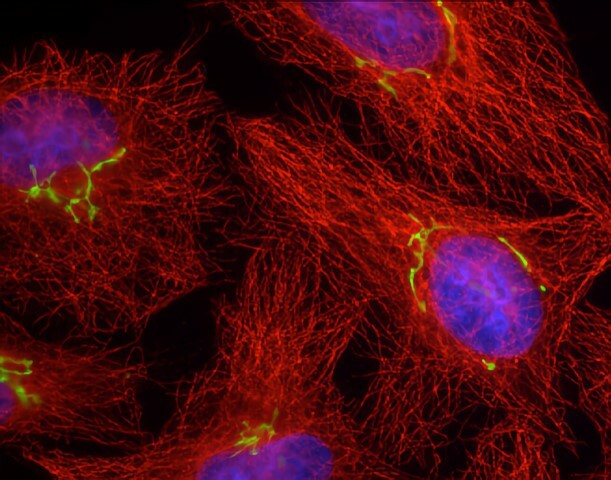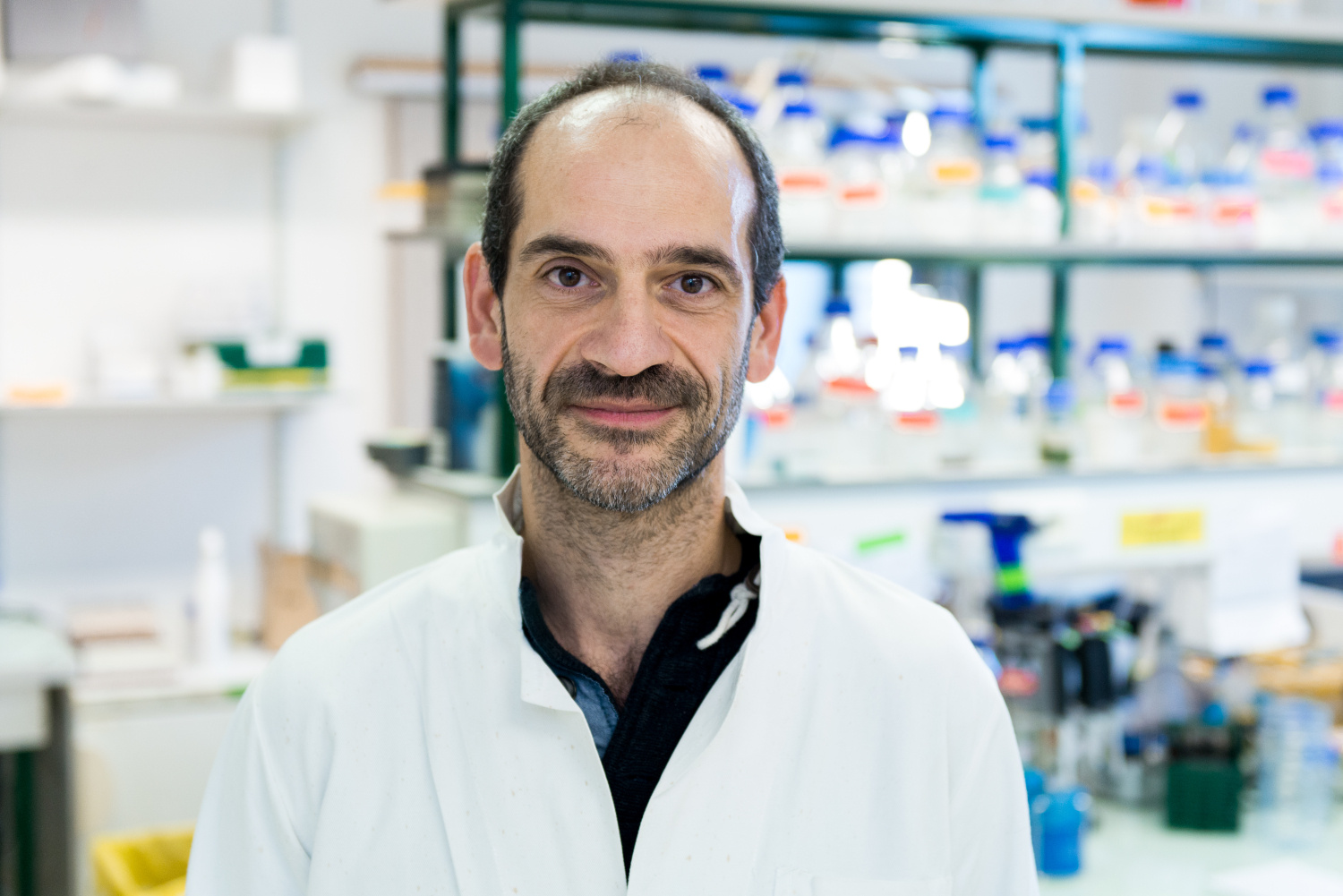Biotech startup: Franck Perez, Honing Biosciences

Honing Biosciences was founded in 2018 as a spin-out company from the Institut Curie, Paris, France, and operates in the field of cell-based therapies. It currently employs seven people. For now it is focused on the development of cutting-edge cell-based immunotherapies but will explore other fields in the future.
What does your company do?

Photo credit: Uriel Chantraine / Institut Curie.
Honing Biosciences is developing tunable systems to be included in cell-based therapies. As a first objective, we aim at controlling the efficacy of CAR-T cells used to cure cancers, tuning their activity and specific toxicity. CAR-T cells represent a revolution in the treatment of certain cancers, such as B cell lymphomas: in this approach, cytotoxic T lymphocytes, usually obtained from the patient, are armed with a chimeric antigen receptor protein (the CAR) that will target a tumor antigen expressed at the surface of cancer cells and induce specific tumor cell death. The strategy is powerful but often comes with side effects and our technology aims to control its power by tuning the intracellular transport of the CAR to the cell surface (CARTuneTM).
Our approach comes from a system we developed to study intracellular trafficking (the RUSH system) that we are now translating to therapeutic development. The RUSH system enables a reversible capture of a cargo protein in the endoplasmic reticulum and its release upon addition of a vitamin (biotin). Our platform is very generic and we will develop it further to create other tunable treatments (CELLTuneTM).
How did you come up with the idea for your company?
As a cell biologist, we know many ways to tune cell activities but, although a lot of diseases are linked to cell behavior defects, it is still complicated to modify sick cells in patients. When I realized that with cell-based therapies, cells are not any more a problem to solve but a solution to develop, it changed my vision of how to transfer my knowledge to therapeutic development.
How did you go about starting the venture?
I am lucky to have a friend, Abdelkader Bousabaa, who comes from another field (finance, mathematics and programming). He is a serial entrepreneur and together we decided to create a start-up to translate the technologies I developed to the therapeutic field. The Institut Curie was very supportive from the beginning.
What have been the biggest challenges?
To me, it was to learn the language of biotech development and to draw our business model. When developing an academic research program, we often build blocks that we will use over the years to go further into understanding mechanisms or cell behavior, for example. At the company we have a short time to reach milestones that will allow us to raise more money and develop a product. As compared to the way I do academic research, for Honing Biosciences I need more focus. Probably the hardest part for me is choosing what I will not do and it is even more important here than in academic research.
Another unexpected challenge for the company was to find space to install our laboratories.
What elements do you think have been key to the success of the startup?
To have a vision and find the best people to share this vision: Abdelkader of course, but also our first Senior Scientist, Zelia Gouveia, who developed the project as a postdoc in my lab and who then joined the company. It is also essential to find investors such as Elaia Partners who manage the Paris Sciences et Lettres (PSL) Fund and, in our case, an academic support like the Institut Curie, who share your vision.
How do you make the best of potential failures?
I have been developing novel technologies for cell biology for a long time and I know that any time you fail, you learn and this will help to improve the next iteration. It is also when we meet limitations that we develop the best innovations.
What would be your advice to young scientists who would like to start their own company?
Find good partners, multiply the discussions and listen to any piece of advice but use it to follow your own path.
Top image of post: by Franck Perez





Join the FEBS Network today
Joining the FEBS Network’s molecular life sciences community enables you to access special content on the site, present your profile, 'follow' contributors, 'comment' on and 'like' content, post your own content, and set up a tailored email digest for updates.